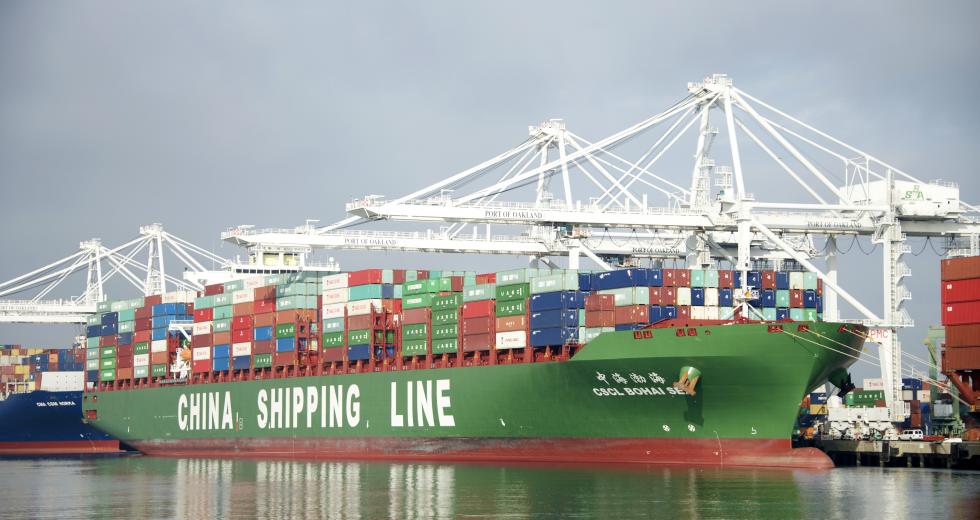Margaret Wong is the founder of McWong International, McWong
Environmental & Energy Group, California Center and the
restaurant Empress M.
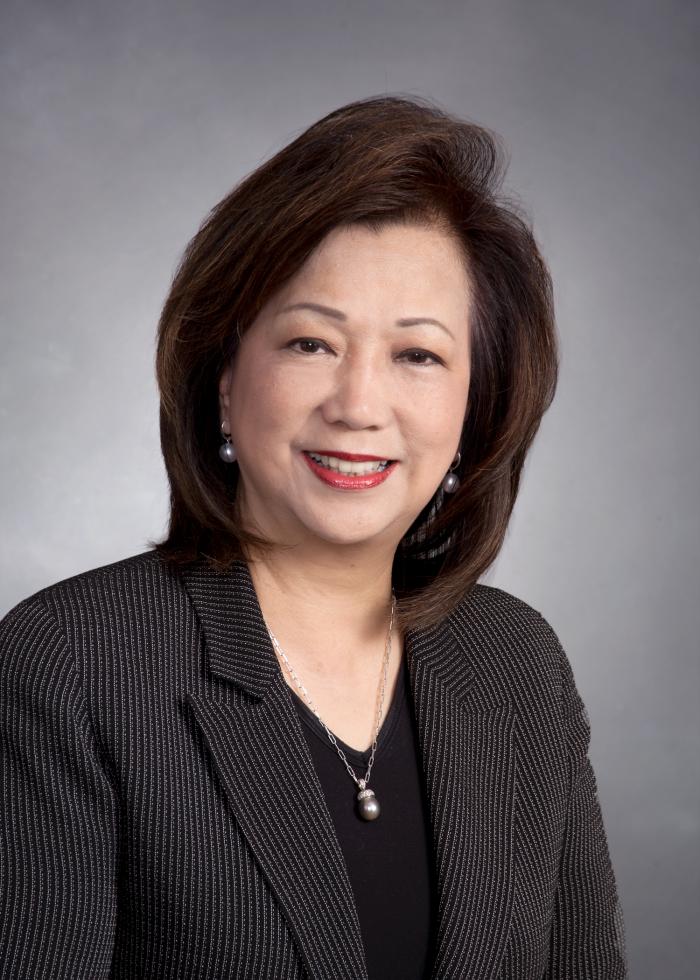
Wong, who was born in Hong Kong and moved to Sacramento in 1985, was used to crossing the Pacific several times each year before the pandemic throttled international travel and slowed trade. She and her employees have since adopted virtual tools and found new opportunities in the crisis. Comstock’s asked Wong about recent developments and plans for the future.
Can you tell me about some of the latest moves of your various businesses?
My primary business is to do trade with China. For the last 38 years I’ve been working on that. And I have multiple companies that are involved with China trade, and so there are a lot of ongoing projects as usual, and there are some special projects that are on the radar. I own a lighting company, and we’ve been manufacturing lighting products primarily in the semiconducting lighting, power-supply side, which is very exciting because LEDs and semiconducting platforms allow lightning to be a hub for (Internet of Things) applications. … We just installed the largest Bluetooth mesh lighting network in the country (and the world) in Minneapolis, in an office. …
“We see that an upcoming younger generation is very hungry for the American lifestyle.”
Another company that I’m very much involved with is Golden California Inc., which we branded under California Center. We are focusing on a totally different industry, focusing on a lot of the consumer industry between the U.S. and China. We see that an upcoming younger generation is very hungry for the American lifestyle, and in China, we like to use this platform to really connect the consumers in areas of education, food and sports. And these are very big worlds, but I think that these are what California Center has been working on very diligently in the last few years. And we have successfully launched projects.
Right now, we’re representing the best culinary school in the nation, Culinary Institute of America. We actually represent them in China to procure a lot of students from China to study in (the) U.S., and to be able to certify them online, offline to train on Western cooking in China. As we all know, China is emerging so fast that there are so many multinational hotels, hospitality companies, theme parks coming to China, but there’s not much professional training of hospitality chefs. …
And another most exciting project California Center is working on is a new college esports tournament. We call ourselves CES International: C as in college, Esports International. We wanted to mobilize a lot of colleges and universities to participate in tournaments, in the future of esports. Nowadays, the youth are so involved with e-games at home, because of COVID, that this has become a billion-dollar industry that is developing so fast, not just in the United States, but worldwide. … This is something that we just established about a year ago, and we’re going to be launching our first tournament in Sacramento, partnering with Sacramento Kings on Aug. 23 at Golden 1 Center. … This is going to be huge, not just for Sacramento — this is one-of-a-kind in the nation. …
Then the other company I have is (McWong Environmental & Energy Group). I’ve spent over 20 years in environmental engineering, doing industrial wastewater treatment for hundreds of projects. Now this company is more focused on putting a fund together … so moving from actually doing the engineering, procurement and construction into investment of the EPC budget. So we’re very active with that and that evolved in China, because China is still building up all kinds of industries, and wastewater treatment is always needed. So the investment is mainly investing in a lot of projects in China.
How did the COVID-19 pandemic affect your businesses?
We came across a lot of hurdles. And also, the U.S.-China relationship currently is at a low point. … There were the Section 301 import duties imposed by President (Donald) Trump before, and the shipping costs between China and the U.S. are just skyrocketing. … COVID has postponed a lot of the things that we wanted to pursue, and COVID has also changed the way we manage projects. So with all that said, there’s always good or bad. We’re still hopeful that COVID is going to go away, the politics between the U.S. and China are going to smooth out, and life goes on.
A lot of your projects involved moving people and goods between China and the United States. How did you adapt that part of your work to the pandemic?
I used to go to China seven, eight times a year. I haven’t been back to China since January of 2020. And how am I going to handle all these businesses without even being there? Not to talk about myself, but my staff, my clients, my Chinese suppliers, my Chinese clients — everybody is having this issue. Fortunately, online meetings, virtual visits, online information sharing is unbelievable. We just have to depend on that. We have virtual meetings all the time, virtual visits of sites, virtual inspection of products. … It’s never as good as when you sit down and have a meal, have a drink, talk it over, be friendly. We don’t have that kind of benefit. But I think that we just have to move on. It’s difficult, but it’s manageable.
Are you going to continue using any of those virtual tools when travel becomes easier?
Absolutely. Travel is always going to be part of international trade. I mean, you can’t get away from it. But I think that online interaction has definitely become part of international trade. … We never imagined that we would be able to virtually walk through the factory for someone that we want to qualify, or for our (quality control) people to QC some of the product. Now it’s possible.
You help American companies gain a foothold in the Chinese market, but the pandemic seems to have accelerated advancements in Chinese omnichannel and platform-based retail models to the point that it may be difficult for Western companies to keep up. Do you see that happening?
I think that yes, you’re right. The China side has been advocating for online ordering, online delivery, all these things ahead of the United States in some ways, and I think that they’re very used to not talking about just ordering, but also digital payment and platforms and all those things. … But I think this is great for international trade.
“International trade is getting into another stage, a higher, better stage because of this online communication.”
The only thing for international trade that is not going to be working is the physical shipping of the goods, meaning that the oil charges are higher. The Suez Canal is causing a lot of upset, and that is still a problem. … But communication online is fascinating. China is very receptive to it. China’s very ready for that, and U.S. is going forward full gauge. So international trade is getting into another stage, a higher, better stage because of this online communication.
You also opened a restaurant, Empress M, in Napa during the pandemic. Can you talk about that experience?
It was about a year of planning. Before COVID, I bought the restaurant and renovated the restaurant and built it into the best Chinese restaurant in Napa. … For me, trying to be able to bridge the U.S.-China relationship, I always think that food is global. Food is diplomacy. Food is love. So what if I, during all of these difficult times, maybe put in this food element and bridged the gap? … I started this restaurant in hopes to be able to provide the best Chinese cuisine in Napa, in hopes to be able to better network Chinese and American culture. I opened this restaurant Dec.18, 2020, which is right at the (peak) COVID time. And luckily, we are doing very well.
When you resume bringing Chinese business executives to California for the California Center, will you use the restaurant as a hub? Do you think it will attract other business leaders as well?
I’m glad you mentioned that, because I was told before COVID, (over 30 percent) of the visitors to Napa are Asians. A lot of them are from China, Japan, Korea. And I was told that some of the Chinese visitors that come in, and they only come to Napa for a day, and then they go back to San Francisco. And the reason is because they said they don’t have good Chinese food within Napa, so they just have to go back to San Francisco.
“I always think that food is global. Food is diplomacy. Food is love.”
Now I was told, because we do have a good Chinese restaurant, they’re going to stay in Napa for a few more days. Then they can invest more money, spend more money in Napa. This is good for Napa’s economy. … And as for me using this restaurant to host a lot of my guests, of course; not just our Chinese delegation, but our U.S. business group. Suddenly, this restaurant would become a meeting (spot) with a lot of the who’s who in Napa. We could be able to obtain amazing networking.
–
Stay up to date on business in the Capital Region: Subscribe to the Comstock’s newsletter today.
Recommended For You
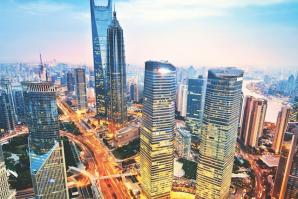
Where is Margaret Wong now?
Then:
We introduced Margaret Wong, president of West Sacramento-based McWong International, to our readership as part of Comstock’s international business special section in February of ‘97.
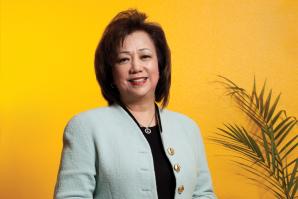
Trade Secrets
The inside scoop on business relationships in the People's Republic
Back in 1985, Margaret Wong saw potential in China’s booming economy and took her Sacramento-based lighting company, McWong International Inc., overseas.

Wealth of Wisdom
California Center President and CEO Margaret Wong on the importance of the China market
Margaret Wong founded the Sacramento-based California Center in 2012 to facilitate business opportunities between California and China. Comstock’s spoke with Wong about expanding to the China market.
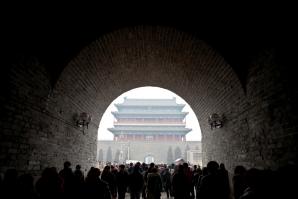
Enter At Your Own Risk
So you think your business is ready to dive into China?
Terry Green was sitting at home a few years ago when his cell phone rang.
Would his company be interested in doing some projects in China?



